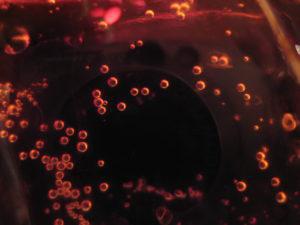Ring-fencing sugar tax revenue not an option

This is despite Health Minister Aaron Motsoaledi saying on Wednesday in Parliament that the Department of Health supports the idea of the Democratic Alliance’s proposal to ring fence the revenue for research on NCDs.
Announced by finance minister Pravin Gordhan earlier this year, the proposed regulations would see all sugar-sweetened beverages (SSBs) taxed by 20% in an effort to curb South Africa’s increasing burden of lifestyle diseases related to obesity.

“The sugar tax is being proposed to reduce the rates of obesity but a welcome side-effect is that it will generate revenue. The Minister sais he would support a proposal to see all or a portion of this put into the health system and be used for health promotion,” said Yogan Pillay, deputy director general for the National Department of Health speaking from the World Nutrition Congress being held in Cape Town this week.
Additional revenues will be allocated through the normal budget process for programmes to fight NCDs. The process will be very transparent. The Department of Health will identify the appropriate interventions.
Skyrocketing obesity
Congress Chair, David Sanders, who is based at the University of the Western Cape’s School of Public Health, said that one reason for the country’s sky-rocketing obesity rates (research has shown that almost half the country’s women are classified as obese) is the fact that unhealthy food is often cheaper than healthier alternatives.
He called on government to undertake policies which would make these foods less appealing for instance subsidising healthy foods.
In Mexico, the revenue gained from their own SSB tax was earmarked for the installation of water fountains to make healthy drinking water more accessible and experts have called on South Africa to similarly ring fence money for public health programmes.
Fund allocations
But Janusz Luterek, a food regulatory expert and attorney for Hahn & Hahn, said that this is not possible in South Africa where taxed revenue goes to a National Treasury where the Minister of Finance will decide where to allocate money announced in his annual budget.
“And we can’t pre-empt the Minster’s decision,” he added.
Treasury, however, told Health-e News that they will work with Motsoaledi to find how best to allocate these funds: “Additional revenues will be allocated through the normal budget process for programmes to fight NCDs. The process will be very transparent. The Department of Health will identify the appropriate interventions.”
An edited version of this story appeared in The Saturday Star.
Author
Republish this article
This work is licensed under a Creative Commons Attribution-NoDerivatives 4.0 International License.
Unless otherwise noted, you can republish our articles for free under a Creative Commons license. Here’s what you need to know:
You have to credit Health-e News. In the byline, we prefer “Author Name, Publication.” At the top of the text of your story, include a line that reads: “This story was originally published by Health-e News.” You must link the word “Health-e News” to the original URL of the story.
You must include all of the links from our story, including our newsletter sign up link.
If you use canonical metadata, please use the Health-e News URL. For more information about canonical metadata, click here.
You can’t edit our material, except to reflect relative changes in time, location and editorial style. (For example, “yesterday” can be changed to “last week”)
You have no rights to sell, license, syndicate, or otherwise represent yourself as the authorized owner of our material to any third parties. This means that you cannot actively publish or submit our work for syndication to third party platforms or apps like Apple News or Google News. Health-e News understands that publishers cannot fully control when certain third parties automatically summarise or crawl content from publishers’ own sites.
You can’t republish our material wholesale, or automatically; you need to select stories to be republished individually.
If you share republished stories on social media, we’d appreciate being tagged in your posts. You can find us on Twitter @HealthENews, Instagram @healthenews, and Facebook Health-e News Service.
You can grab HTML code for our stories easily. Click on the Creative Commons logo on our stories. You’ll find it with the other share buttons.
If you have any other questions, contact info@health-e.org.za.
Ring-fencing sugar tax revenue not an option
by Amy Green, Health-e News
September 3, 2016
MOST READ
Prolonged power outage leaves hospitals in the dark for two days
There’s more to self-care than scented candles or massages, it’s a key public health tool
Malaria can’t be beaten without political will and more funding
Access to clean water and stable electricity could go a long way to addressing rising food poisoning in SA
EDITOR'S PICKS
Related



